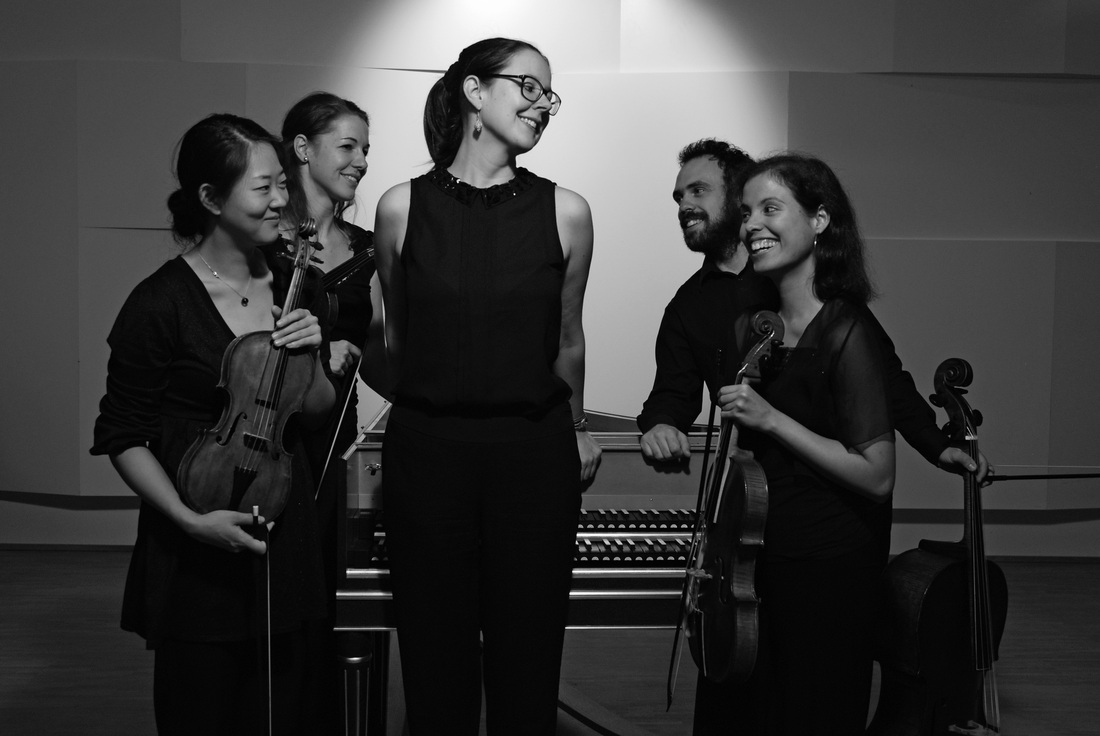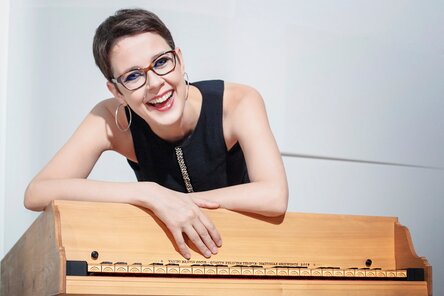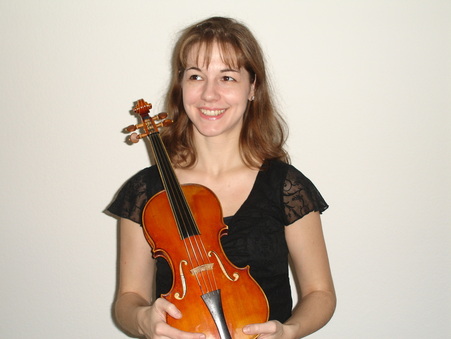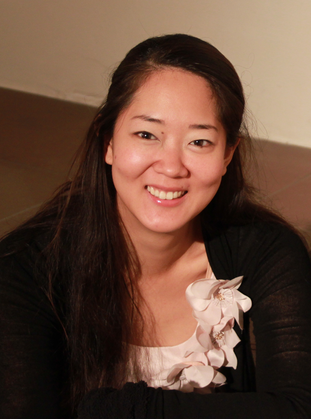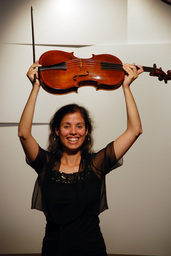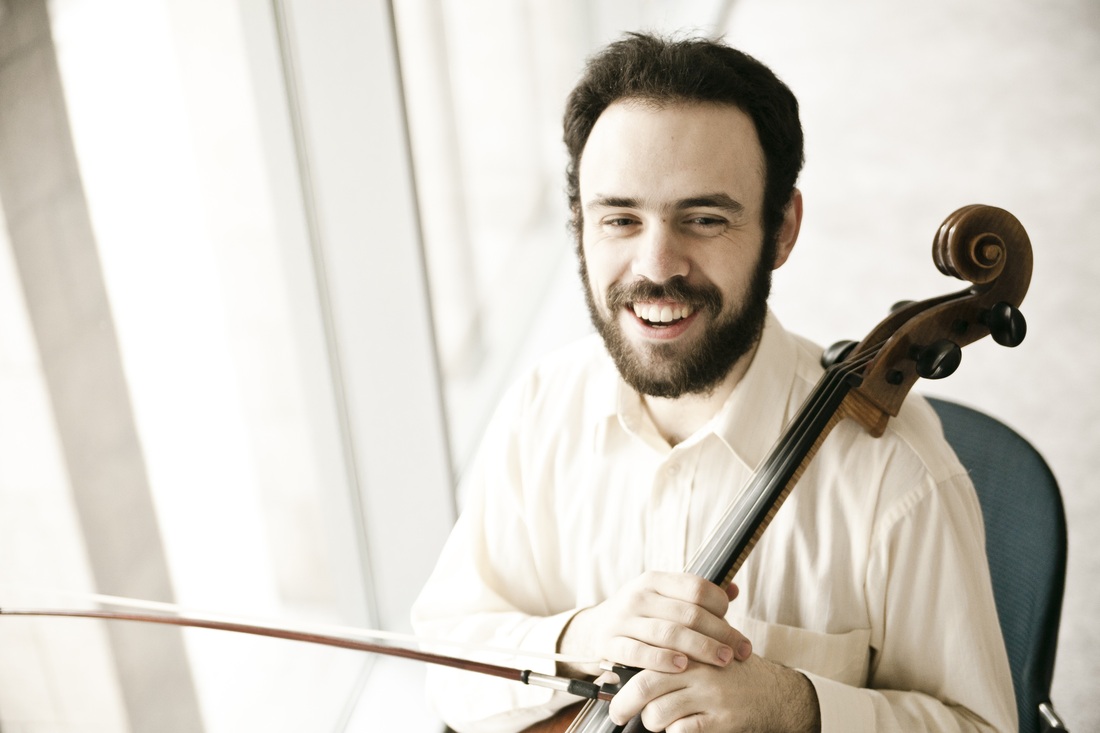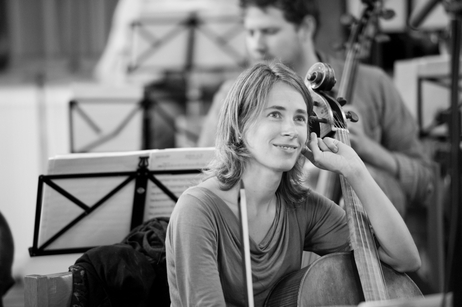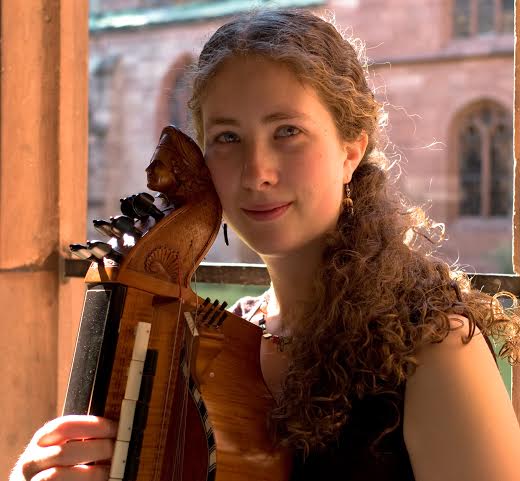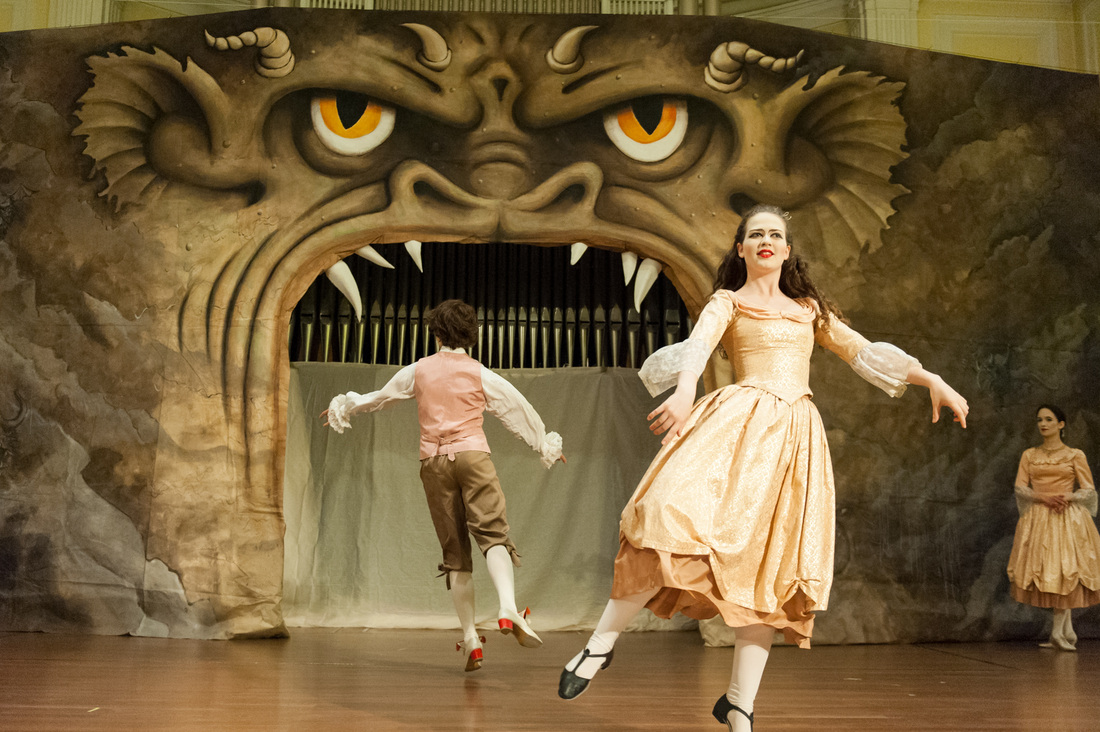The ensemble Le-je-ne-Scay-quoy was founded by the French harpsichordist and organist Cécile Mansuy and the Hungarian violinist Ildikó Sajgó. One of the ensemble's centres of interest is the repertoire for obbligato harpsichord. The formation of the ensemble is therefore flexible, being adapted as necessary to cover repertoire from J.S. Bach's sonatas for violin and obbligato harpsichord, to concertos, to pieces for harpsichord and consort by J.P. Rameau. The members of Le-je-ne-Scay-quoy are seasoned musicians, their experience enriched by their training at the Schola Cantorum Basiliensis with, among others, C. Banchini, A. Beyer, J.C. Zehnder, A. Marcon, C. Coin, P. Pandolfo, B. Dickey, A. Rooley and J. Savall. The high quality of their artistic activity is attested to by various prizes in international competitions, by CD and radio recordings, and by regular participation in prestigious festivals in Europe, Latin America and Asia.
Cécile Mansuy, harpsichord & organ
|
Cécile Mansuy subsequently studied in Toulouse with J. W. Jansen (harpsichord), M. Bouvard (organ) and L. Boulay, Y. Bouvard and F. Saint-Yves (basso continuo), achieving her diploma with distinction. Further training followed at the Schola Cantorum Basiliensis with J.-C- Zehnder & A. Marcon and at the Haute Ecole de Genève with A. Fedi. She also studied harpsichord with B. Rannou, E. Joyé,
|
N. Spieth, A. Zylberajch; and organ with A. Cea Galan, J. Boyer, M. Radulescu. In orchestra, opera and ensemble studies she received tuition from H. Niquet, L. Garcia Alarcon, B. Dickey, C. Toet and P. Pandolfo. Cécile Mansuy has given concerts in the festival Pavia Barocca 2012 – Ghieslieri Musica, in the Festival "Young artists in concert" in Davos, Ambronay Festival... She has performed with W. Dongois, S. Azzolini (Parnassi Musici), E. Bronzi (Orchestre de l’Accademia Mozart de Bologne), C. Banchini and other distinguished artists. As a soloist she has been invited to perform in Festival Jeunes Talents-Paris (Golberg Variations), and to play historical organs in Treviso and Parma (Italy), Sencelles (Spain), St Ursanne, Muri and Arlesheim Cathedral (Switzerland), and numerous instruments elsewhere. She won 3rd prize at the ‘Paola Bernardi’ harpsichord competition in Bologna in 2009, and won 2nd prize and the audience prize at the ‘van Wassenaer’ competition in Amsterdam in 2011, where she performed in ensemble. Together with Francesco Saverio Pedrini she is the joint artistic director of 'le capitali della musica', created to promote the Vittorio Ramina Italian baroque style organ in the Oberstrass Reformed Church in Zurich. In February 2014 she will release her first solo CD with TYXart records, entitled "Capriccio sopra il genio del Bach giovanissimo", and featuring music from the young J.S. Bach (harpsichord & organ). |
Ildikó Sajgó, baroque violin
|
Ildikó Sajgó was born in 1977 in Sárospatak in Hungary, where she received her first musical training on the violin. From 1991 she attended the Béla Bartók music school in Miskolc, where she obtained her Baccalaureate in 1995. From 1995 to 1999 she pursued her studies at the Franz Liszt Music College in Budapest, which she completed with a teaching diploma. From 1999 to 2004 she taught violin at the Ernó Dohnányi music school in Budapest. In 2004 she joined the violin class at the Schola Cantorum Basiliensis where, under the tutelage of C. Banchini, she obtained her baroque violin diploma. Since 2007 she has performed regularly with renowned orchestras such as Capriccio Basel, La Cetra Barockorchester, J.S.Bach-Stiftung St.Gall (R. Lutz), Cantus firmus Consort, and also with Danubia Symphonisches Orchester, Kammerorchester Animato, Orfeo Barockorchester. She has participated in several recordings, of which the most recent include: Johann Rosenmüller: "Lo Zuane Tedesco" with I Fedeli; Mudge: Six concertos by Telemann; "Dolce e staccato" with Capriccio Basel. |
Sonoko Asabuki, baroque violin & baroque viola
|
Tokyo-born Sonoko Asabuki studied viola with Nobuo Okada at the State University for the Arts and Music in Tokyo. In 2006 she obtained her Master's degree and the "Young Artist Award". In 2005 Sonoko won 1st prize at the Competition for String Instruments in Tochigi, and 2006 another first prize at the International Music Competition Hyogo in Japan. In 2007 she continued her viola studies with Prof. Wolfram Christ at the Hochschule für Musik in Freiburg in B. in Germany, where she obtained her diploma in 2009 with distinction. Deeply touched by Early Music, she began her studies in baroque violin with professors Chiara Banchini, Leila Schayegh and Amandine Beyer at the Schola Cantorum Basiliens, obtaining her Master's degree in historically informed performance in 2012 with distinction. In 2011 she won 1st prize at the Wassenaer Competition in Amsterdam with the Den Haag Piano Quintet. She has worked with renowned musicians such as Chiara Banchini, Trevor Pinnock, Gottfried von der Goltz, Seiji Ozawa and numerous ensembles and orchestras such as Il Profondo, Barockorchester Capriccio Basel, Basler Barockorchester La Cetra, L'Allegra Fonte, and Bach Collegium Japan. |
Céline Lamarre, baroque viola
|
Having studied modern viola in the Paris region, Céline Lamarre was introduced to early music by Patrick Bismuth, with whom she subsequently studied baroque viola and violin. She has been a regular participant in projects with the French Baroque Youth Orchestra under the direction of Paul Agnew and Reinhard Goebel. She has played with ensembles such as Orfeo 55 directed by Nathalie Stutzmann and Les Folies Françoises with Patrick Cohën-Akenine, with whom she has also studied. An enthusiastic pedagogue, Céline obtained a teaching diploma in 2003 and since then has taught music theory at the Conservatoire de Bourg-la-Reine/Sceaux. She has also studied harmony and counterpoint at the Paris Conservatoire since 2007. Céline currently lives in Switzerland where she is pursuing her baroque violin studies with Amandine Beyer at the Schola Cantorum in Basel.
|
Alexandre Foster, baroque cello
|
Alexandre Foster, born 1986 in Canada, studied with Thomas Demenga in Basel passing his concert diploma in 2009 with distinction. He then studied with Conradin Brotbeck, also passing his soloist diploma with distinction in summer 2012. Since 2012 he has been studying baroque-cello with Christophe Coin at the Schola Cantorum Basiliensis. Further musical knowledge and motivation were imparted to Alexandre by Rainer Schmidt (Hagen Quartett), Gerhard Schultz (Alban Berg Quartett), Michael Tree (Guarneri Quartett), Jesper Christensen, Amandine Beyer, Jaap ter Linden, Miklos Perenyi, Ralph Kirschbaum, Wolfang Boettcher etc.
Between 2010 – 2011 he was member of the Iris Quartet (Freiburg) with which he went on a concert tour around the world. In November 2010 he played the world premiere of Hermann Keller's Sonata in a-minor, op. 4, for cello and piano; the concert was recorded by SWR2. Since 2011 he is also teaching cello at the Music Workshop (Musikwerkstatt) Brugg. He is also performing/has also performed with Camerata Bern, CHAARTS, Thurgauer Kammerorchester, Café Zimmermann. He recorded chamber musique works for Divox. |
Amélie Chemin, gamba & baroque cello
|
Amélie Chemin was born in Le Mans, France. She coursed her undergraduate studies in cello and chamber music in Caen and Lyon with honors. Later she became deeply intersted in the viola da gamba, and decides to study with Jérôme Hantaï, Emmanuelle Guigues in Lyon. In 2003 she moved to Basel where she studied at the Schola Cantorum Basiliensis with Paolo Pandolfo, graduating in 2008. At the same time she studied baroque cello with Petr Skalka and renaissance viol and fiddle with Randall Cook. In 2008 she self- taught herself to play the arpeggione (guitar-cello instrument) performing the famous Schubert Sonata « Arpeggione » at the Gruyères Festival. She has taken masterclasses with Marianne Muller, Jordi Savall, Philippe Pierlot and Vittorio Ghielmi. Since 2003 she has taken part of projects under the lead of W. Christie, T. Koopmann, J. Savall, A. Marcon, P. Pandolfo, J. Rifkin, J. Christensen, B. Dickey, A. Rooley, V. Genaux, P. Petibon and H. M. Linde among others. Currently she is member of many ensembles such as «La Cetra Barockorchesters Basel» , «Opera Prima», «Opera musica» ,«Concerto Scirocco», «Ensemble Mare Nostrum», and is founding member of the continuo ensemble «Il Profondo» and «Ensemble La Traditora». Amélie has performed in Europe, Turkey and Colombia and has recorded for labels Deutsche Grammophon, Ricercar,Tactus, ORF, Glossa, Cantus.
|
Tobie Miller, hurdy-gurdy, recorder & voice
|
The Canadian hurdy gurdy player, recorderist and singer, Tobie Miller, grew up in a family of classical musicians. After studies in Early Music Performance (B.Mus) at McGill University (Montreal, Canada), she moved to Basel (Switzerland) to pursue postgraduate studies at the prestigious Schola Cantorum Basiliensis. Her work in Basel was supported by two grants from the Canada Council for the Arts, and by the J.B.C. Watkins Award. She was the recipient of a further grant from the Canada Council in 2011-2012 for her work on the baroque hurdy gurdy and transcriptions of J.S. Bach's solo cello and violin repertoire for the same instrument. Currently dividing her time between Basel and Montreal, Tobie continues to perform and record with many ensembles on both continents including the Ensemble Baroque de Limoges (recording of Haydn and Mozart concerti forthcoming, on the Laborie label), Les Musiciens de Saint Julien (recording on Alpha label), Per Sonat (recording on the Christophorus label), and her own ensembles, La Rota and Ysis. One of the only hurdy gurdy players to come to the instrument through early music, she is recognized as a virtuoso of the baroque hurdy gurdy, and performs in various formations, including in duo with the Austrian hurdy gurdy player, Matthias Loibner, as well as with well-known conductors such as Jordi Savall, Christophe Coin, and Wieland Kuijken. While maintaining a busy performing career, she also teaches regularly at workshops and festivals including CAMMAC (since 2003), the Over the Water Hurdy Gurdy Festival (since 2005), Les Journées de La Flûte à Bec (2006), and at the Schola Cantorum Basiliensis (2008, 2012).
|
Tabea Schwartz, historical dance & recorder
|
Tabea Schwartz started her professional training in 2010 at the institute for Early Music, Schola Cantorum Basiliensis, with Prof. Katharina Bopp (recorder). She finshed her first studies with a Bachelor certificate in 2013. Continuing to specialize not only in the interpretation of Baroque music but also in the music of Renaissance and Medieval times she is currently studying with Corina Marti (recorder) and Randall Cook (fidel) in the Medieval department of the SCB. As a recorder player, she has already successfully participated in competitions (e.g. Händel youth price Karlsruhe) and attended various Master classes, among the courses with Michael Form, Dorothee Oberlinger und Nikolai Ronimus. In 2014 she was guaranteed a scholarship of Dartington International Summer School (UK). Her training as a dancer is based on the work with Véronique Daniels (Renaissance dance) and Barbara Leitherer (Baroque dance). As a dancer, she already performed in the Thüringer Tage für Alte Musik, in Basel’s Drummeli and several smaller Baroque opera productions.
|

